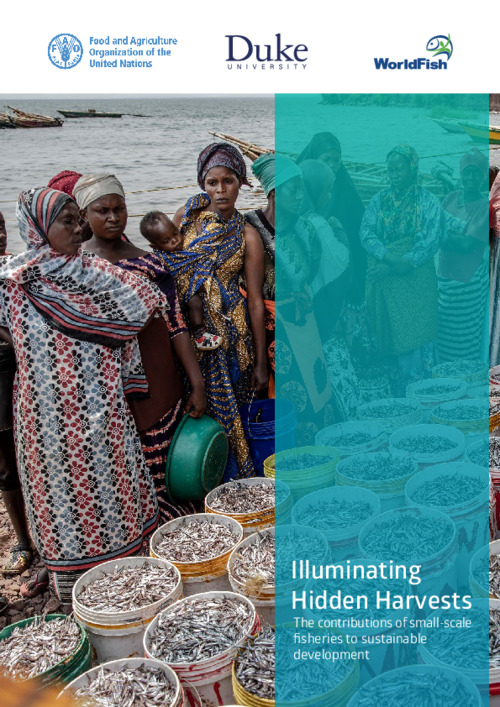Illuminating Hidden Harvests The contributions of small-scale fisheries to sustainable development

Small-scale fisheries account for at least 40 percent of the global catch from capture fisheries and provide employment across the value chain for an estimated 60.2 million people, about 90 percent of the total number employed in fisheries globally. The economic value of these fisheries, however, is only a part of their importance: for example, nearly 53 million additional people were estimated to be engaged in subsistence activities in 2016. Rightly considered from a holistic and integrated perspective, small-scale fisheries define the livelihoods, nutrition and culture of a substantial and diverse segment of humankind. This study, Illuminating Hidden Harvests: the contributions of small-scale fisheries to sustainable development (hereinafter Illuminating Hidden Harvests, or IHH), uncovers the contributions and impacts of small-scale fisheries through a multidisciplinary approach to data collection and analysis. The study provides information that quantifies and improves understanding of the crucial role of small-scale fisheries in the areas of food security and nutrition, sustainable livelihoods, poverty eradication and healthy ecosystems. It also examines gender equality as well as the nature and scope of governance in small-scale fisheries, and how this differs between different countries and fishery units. The IHH study was carried out in support of the implementation of the Voluntary Guidelines for Securing Sustainable Small-Scale Fisheries in the Context of Food Security and Poverty Eradication (SSF Guidelines), themselves developed in recognition of the plight of small-scale fishers, fishworkers and associated communities. The SSF Guidelines provide advice and direction for the enhancement of responsible and sustainable small-scale fisheries, through the development and implementation of participatory, ecosystem-friendly policies, strategies and legal frameworks.
Permalink
Date Available
Type
Copyright
CC-BY-NC-SA-4.0
Research Themes
Language